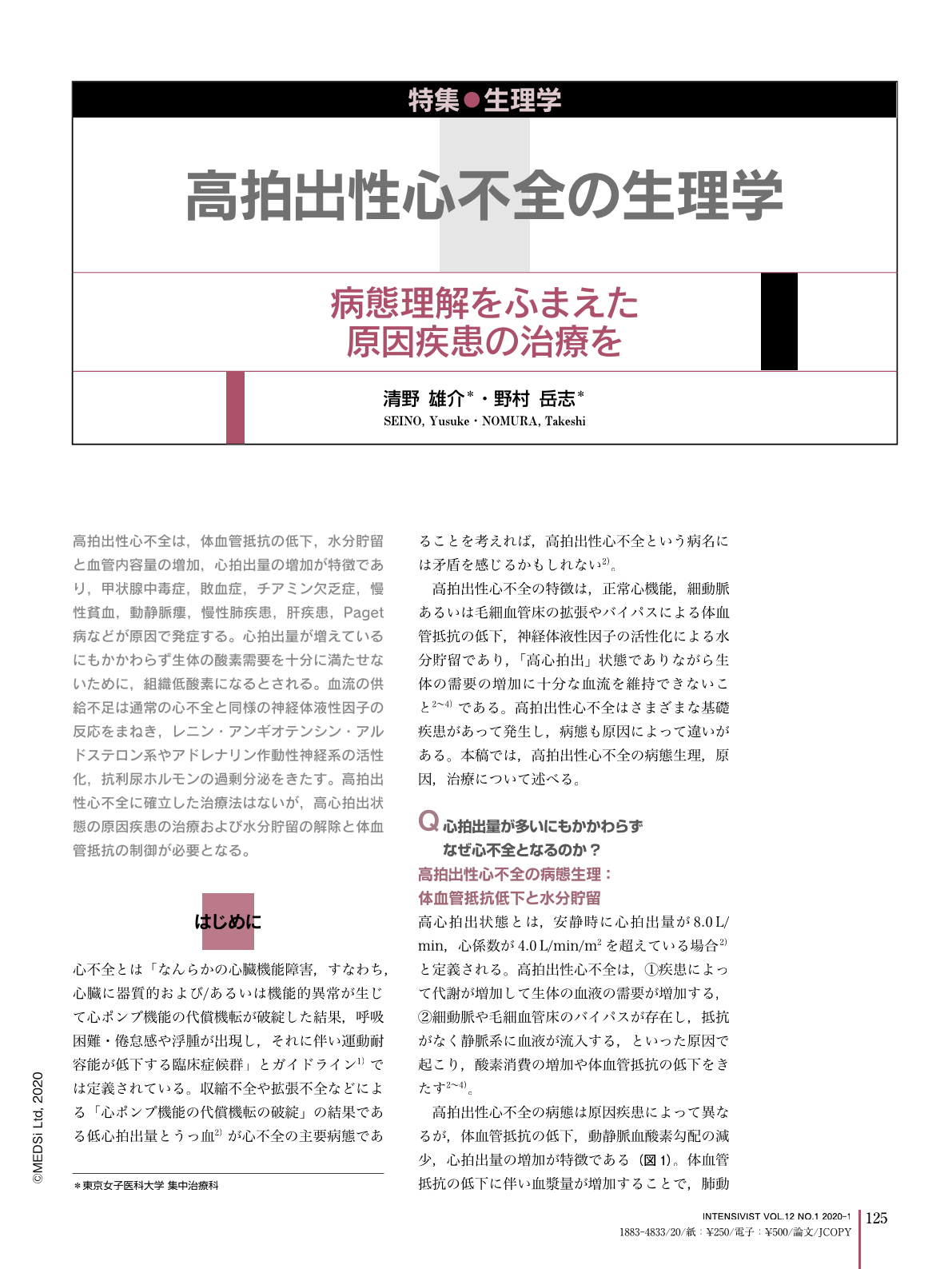Japanese
English
- 有料閲覧
- Abstract 文献概要
- 1ページ目 Look Inside
- 参考文献 Reference
- サイト内被引用 Cited by
高拍出性心不全は,体血管抵抗の低下,水分貯留と血管内容量の増加,心拍出量の増加が特徴であり,甲状腺中毒症,敗血症,チアミン欠乏症,慢性貧血,動静脈瘻,慢性肺疾患,肝疾患,Paget病などが原因で発症する。心拍出量が増えているにもかかわらず生体の酸素需要を十分に満たせないために,組織低酸素になるとされる。血流の供給不足は通常の心不全と同様の神経体液性因子の反応をまねき,レニン・アンギオテンシン・アルドステロン系やアドレナリン作動性神経系の活性化,抗利尿ホルモンの過剰分泌をきたす。高拍出性心不全に確立した治療法はないが,高心拍出状態の原因疾患の治療および水分貯留の解除と体血管抵抗の制御が必要となる。
High output heart failure is characterized by reduced systemic vascular resistance, high cardiac output, and salt and water retention. The causes of high output heart failure include hyperthyroidism, sepsis, thiamine deficiency, chronic anemia, arteriovenous fistulae, chronic lung disease, liver cirrhosis, and Paget's disease of bone. Heart failure occurs when the cardiac output is insufficient to supply the oxygen demand of the body, even with high cardiac output (>8L/min), and the shortage of blood supply causes a neurohormonal response similar to that seen in common heart failure, including activation of the renin-angiotensin-aldosterone system, adrenergic nervous system, and/or an excess of antidiuretic hormone. Although there is no standard treatment for high output heart failure, the treatment of the cause of high output, resolving salt and water retention, and controlling systemic vascular resistance are required.

Copyright © 2020, MEDICAL SCIENCES INTERNATIONAL, LTD. All rights reserved.


